One of the school’s core missions is to pass on traditions of Chinese culture and to foster an international perspective. International staff are a core part of this mission, as they share their culture outwards to the students and local staff. However, this passion flows both ways, as many say that a desire to learn Chinese and Chinese culture was a primary reason they chose to come and work at the school.
Language and cultural understanding are more than a matter of interest, these skills are considered an aspect of personal development for foreign and local staff members alike. Though language development is normally talked about in a student-centric context, the development of the faculty is an essential part of the puzzle in creating a truly bilingual environment for the benefit of all.
The school has a number of initiatives to support language learning as part of a wider plan for ensuring staff are continually engaged in professional development. One of which is the Foundation’s funding for language programmes, with over 70 faculty members taking advantage of this programme in the 2020-2021 academic year alone. Students also support these endeavours – at the High School the students have created the Chinese Apostrophe Club to support teachers’ language development.
Please click below to watch our previous videos from the
"I love Pao school | International Teachers learning Chinese" series
I love Pao School | International Teachers Learning Chinese II
Making memories in Chinese

Jonathan Burnhill
Wuding Campus
Y1 Cohort Leader
Joined Pao School in 2011
After a childhood of travel, Jonathan first came to China in 1998 as a university student. During those first travels around the country, he was particularly blown away by the beauty and size of Yunnan province. The landscapes, from the jungles to the snow-capped mountains of the Himalayas, stuck in his memory, alongside the diversity of the minority groups and their fascinating cultures.
After returning to finish studies in the UK to study, it was these memories that eventually drew him back to China to volunteer with an international development organisation. He was posted in Dehong, Yunnan, to work in a teacher training college and support local development programmes.
On this first day, left to fend for himself, he soon found that very few people spoke any English – during his four years in the region, he only encountered two other foreigners passing through. “When I got to the airport in Kunming, I spoke no Chinese at all, I think I only knew ‘hello everyone’.
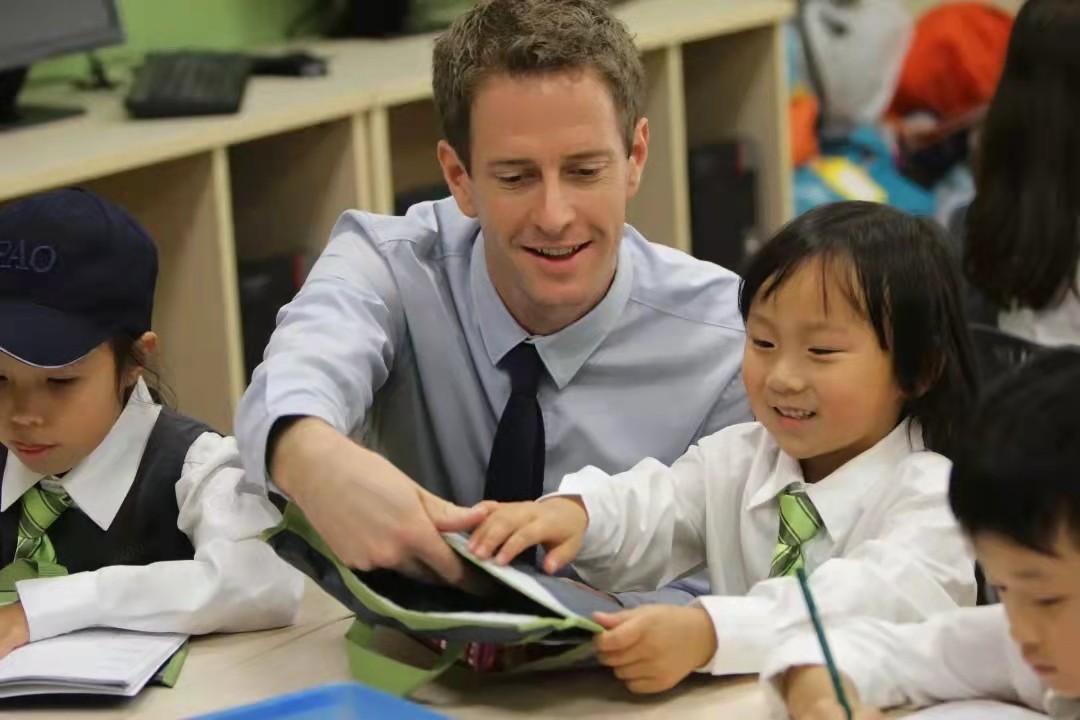
Out of necessity, his Chinese quickly developed to adapt for survival in this strange new environment. Choosing to learn from experience, not a book, he explains that he threw himself into conversations and learned through making mistakes. Sometimes, he found, though he didn’t know the correct vocabulary, he could ‘talk around it’ and explains that once you know the basic grammatical rules of Chinese you can ‘build it like lego’.
His work with social projects held an even more challenging linguistic barrier, as few of the people he was helping spoke Mandarin. Due to Yunnan’s rich ethnic diversity and its many minority groups the region is host to a number of dialects – with many groups unable to understand one another's language. As one of Jonathan’s key volunteer responsibilities was to develop health education programmes with ethnic minority groups such as the Lisu, Jingpo, A'Chang and De'ang, it was essential he could find a way to communicate.
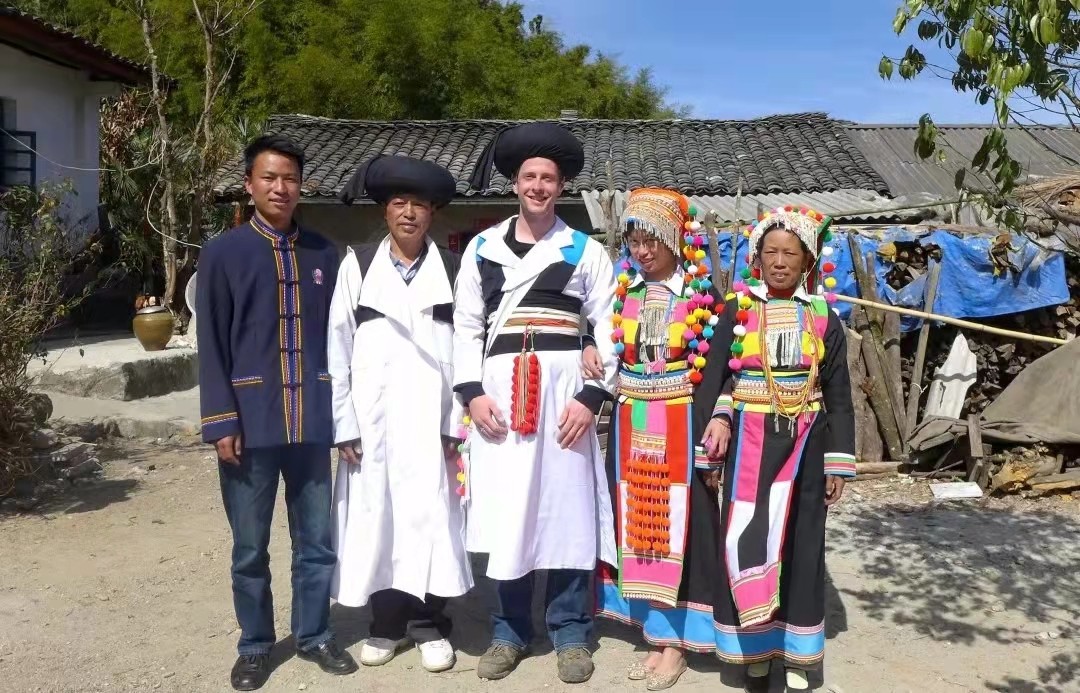
Eventually, he became not only able to speak Chinese, but to also speak a little of the Lisu and Jingbo languages. As an environment, he says, it was truly immersive and he still has friends in Yunnan today, “I absolutely loved it in Yunnan, I have really good friends and four years of memories there – the vast majority of which are all in Chinese. I went to all these places, travelling and exploring. It was pretty special.”
After four years, he returned to the UK to gain his teaching qualifications. It was after this time he found himself at YK Pao School in 2011, choosing the school due to its cultural diversity. Due to his time in Yunnan, he wanted to carry the spirit of cross-cultural collaboration to his work as a teacher. He explains, “I’ve always felt that race isn’t a barrier to anything, you just work together, learn from each other, have fun together. There is no barrier, no difference, I’ve learned so much from the local staff!”
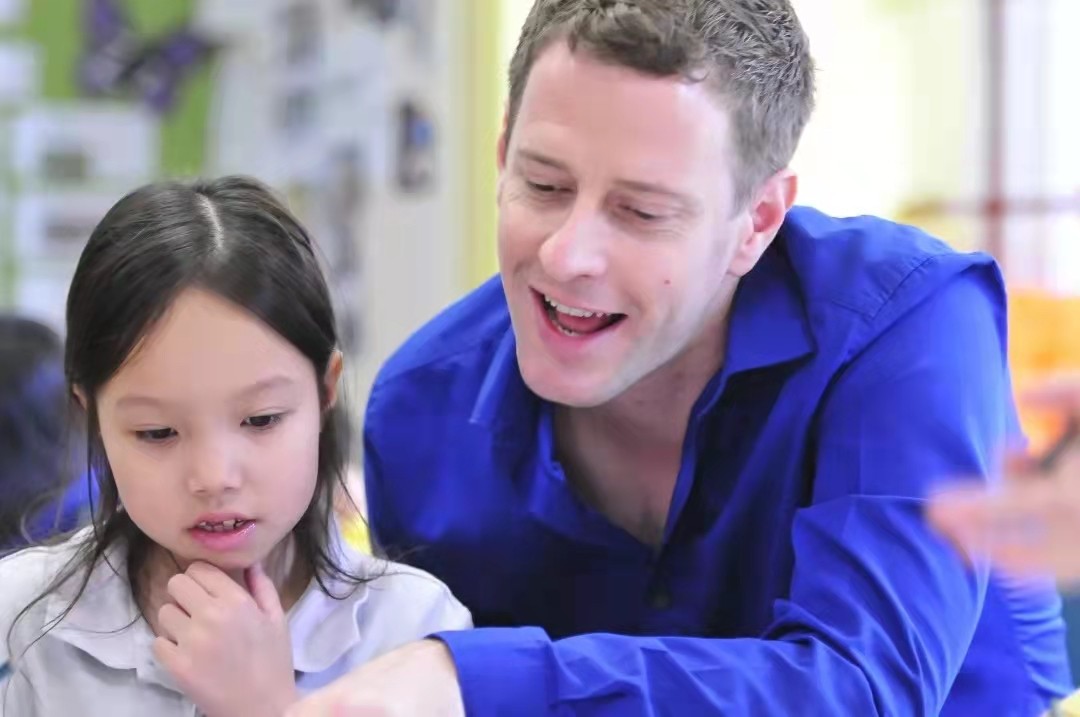
Seven years ago, Jonathan met his wife through the school. As co-teachers in his homeroom class, he quickly developed a deep respect for the way that she interacted with the students. As she is Shanghainese, he notes that his marriage has given him a new cultural perspective.
Reflecting on his experiences at the school, Jonathan commented,
“Pao School keeps moving forward and has gotten progressively better and better.
The founders have always been a great support and I love the vision of the school. It has
always been going for that world-class school level, even from its very small beginnings.”
Nothing seemed quite
as compelling as Pao School
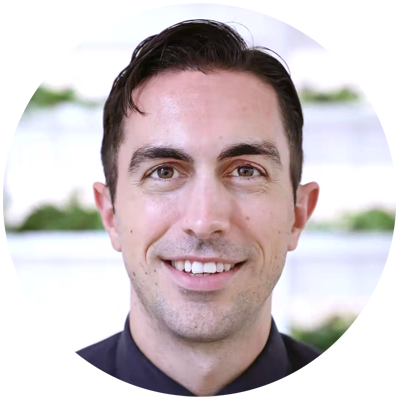
Peter Rotundo
Songjiang Campus
Humanities Teacher
Joined Pao School in 2011
Peter Rotundo is originally from the Boston area, in the US. Unlike Jonathan and Philip, Peter’s journey in China started at Pao School as one of the High School’s founding staff members. He had been thirsty to take on a ‘personal challenge’ and was seeking an adventure, a new language and an entryway into teaching as a career. He succeeded on all three points, explaining that as a founding faculty member at Songjiang he was able to also gain experience across a myriad of areas due to the relatively small body of staff – there were only 20 faculty members when he first joined.
In 2017, Peter left the school to travel and reunited with his much-missed family, but soon chose to return to Pao School in 2019, stating, “Nothing that was on the horizon in the US seemed quite as compelling as YK Pao School.”
There are a multitude of reasons for his return. He explains that the respect and freedom he was given by school leadership allowed him to develop his pedagogical craft, and that this factor was complimented with the values of the school aligning closely to his own personal beliefs. He says that the non-profit nature of the school allows teachers to focus on a student’s education, rather than profits, and prevents the teachers viewing students and their attainments as ‘products’.
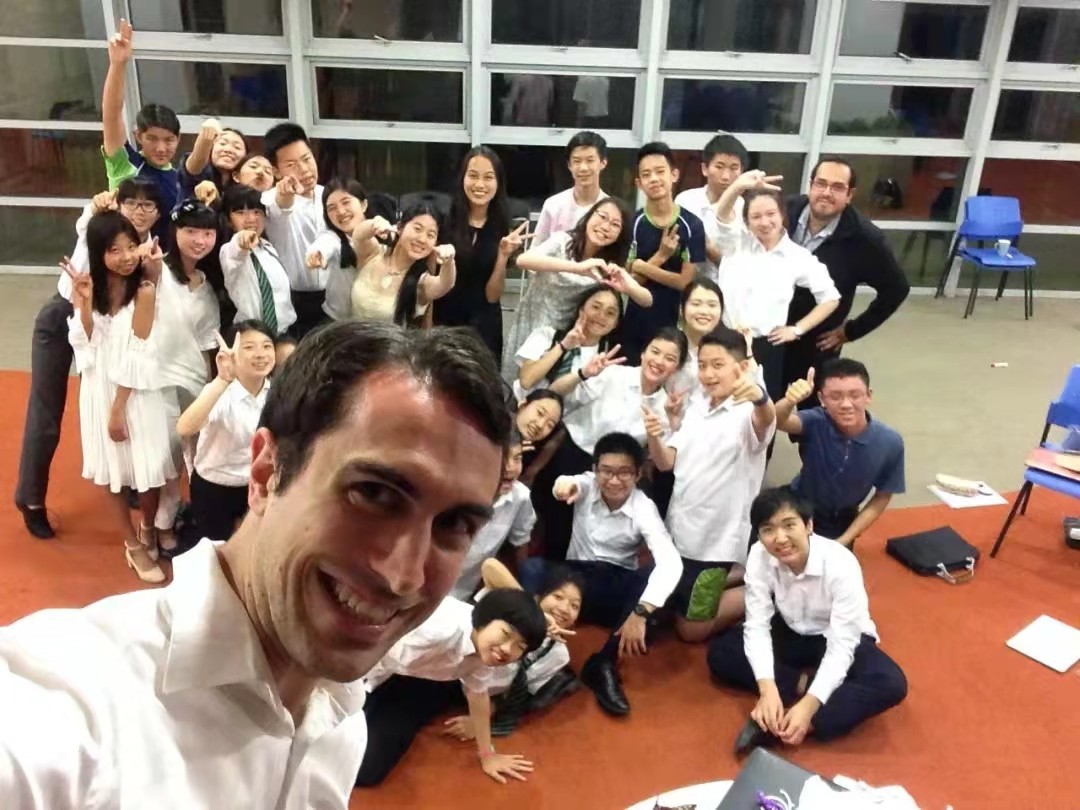
Peter also agrees whole-heartedly with the Pao School whole person education ethos and its approach to global education with a Chinese core. For him it is important that the students are taught to value their Chinese heritage, whilst remaining adaptable and gaining the ability to move around internationally. Alongside the students’ global citizenship, he also values that they are “simply good people” and that the campus has a culture of intellectual curiosity,
“The kids we are working with are phenomenal, they are so curious, I have
almost no behavioural management to do in my classes and I can be so
focused on content and pedagogy, so it winds up being very rewarding.”
Over the years, he has seen the school rise from strength to strength, under strong leadership and the development of a clearly defined school culture – including a multitude of professional development (PD) opportunities. Alongside the improvement of his teaching, he also relishes the chance to pursue Chinese in his free time.
“When I took the job, it would have been hard for me to come up with ‘ni hao’,” says Peter, who is currently at an low advanced level of Chinese. He can now enjoy reading articles in Chinese and has even conducted parent-teacher conferences in the language. During his early years at the school, as a complete beginner, he studied the language from a textbook, used a number of APPs and now enjoys reading simple books in his spare time. He is also supported by the school’s Apostrophe Club, a student led group that ‘teaches the teachers’.
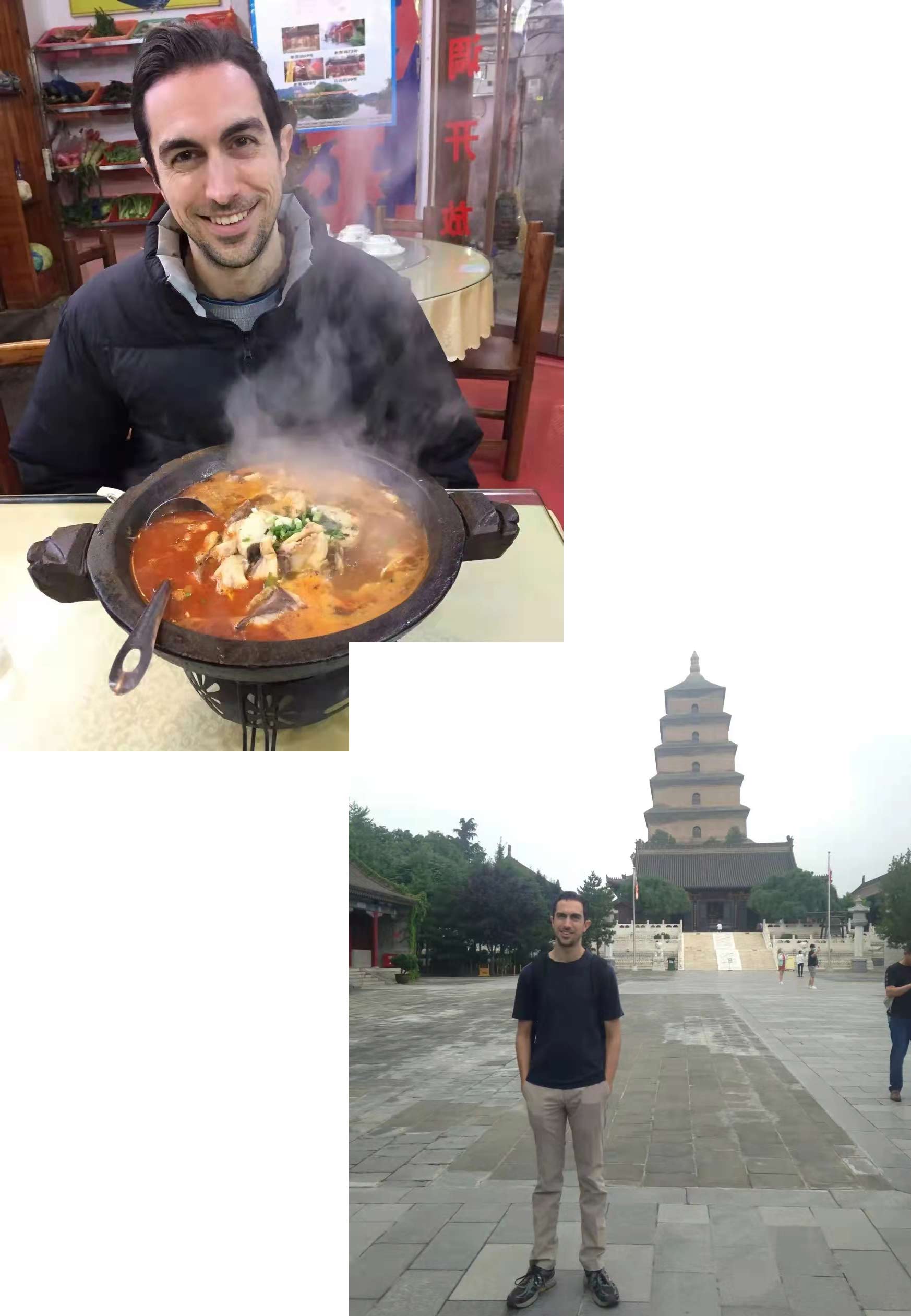
As a child of two history teachers, Peter has found himself also fascinated with China’s history and its vast differences to what he learned at school about Europe and North America. During his college years, he studied World History and is keen to continue expanding his knowledge of China. Particularly fascinating, he says, is the sheer length of Chinese history, alongside the detailed nature of the records that document it.
He is also an avid traveller, alongside developing his Chinese through immersion as he travels, it also allows him to go to historical sites to see the stories come to life, “You can also go to a place and see the history, for example this past summer I was reading up on Qin Shi Huang when I went to Xi’an.”
The student becomes the master
The Apostrophe Club was established at Songjiang in 2018, by then Y12 students Selina, Kingsley and Lisa. The club is dedicated to teaching the foreign faculty Chinese and over its time it has taught over 40 members of staff. The school was founded as students frequently found teachers expressing that they want to be able to use Chinese in daily life. Many hoped to use Chinese apps for shopping, to write characters, order takeaway, take taxis and, importantly, to understand what their students are saying in Chinese.
Daisy, current leader of Apostrophe club, acted as ‘teacher’ for Mr. Rotundo in the last school year alongside her classmate Christine, Class of '21. She had originally heard about the club in assembly, explaining that due to her fascination with Chinese history and culture she was excited to share her knowledge with her foreign teachers. The club allowed her to gain a deeper understanding the ‘origins and mechanisms’ of Chinese language and culture. However, it is also a challenge of her Chinese, as she notes it is sometimes hard to explain the difficult concepts while constantly switching from Chinese and English.
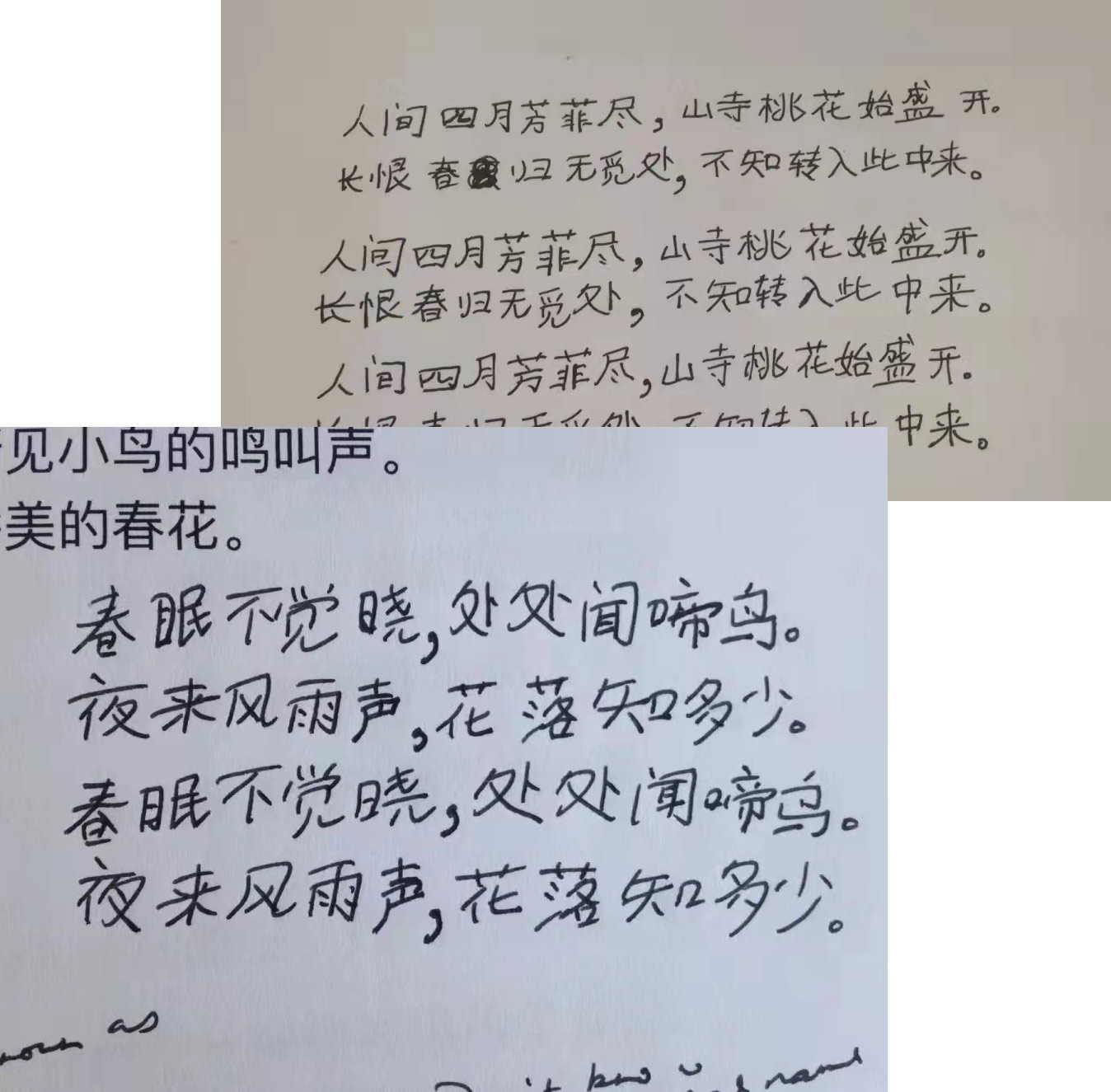
Peter practises handwriting through copying poetry
In her classes, she usually selected a theme related to Chinese culture, with connections to a particular seasonal event or her own experiences. She then prepared a poem to introduce the topic, as well as handouts to explain the concepts and homework with links to more information. For example, last year she taught Mr. Rotundo about Wu Xia (‘martial arts heroes’) – a genre of Chinese literature, television and cinema – and its transformation into pop culture.
Peter feels very grateful for Daisy’s help, as the students are the perfect teachers to understand more about contemporary pop culture and slang. It is also a way, as a second language learner, to mutually develop empathy towards the struggles of learning a new language. Alongside supporting his ability to relate to his students, Peter explains that the family-like bonds he shares with other members of staff have been fundamental to building a better understanding of others. He says, reflecting on the international community the school has developed, “It’s been a really profound experience, encountering friends from different cultures and different backgrounds. And it’s exciting because it is with people from all around the world.”
From Guangzhou, to Wales, to Shanghai
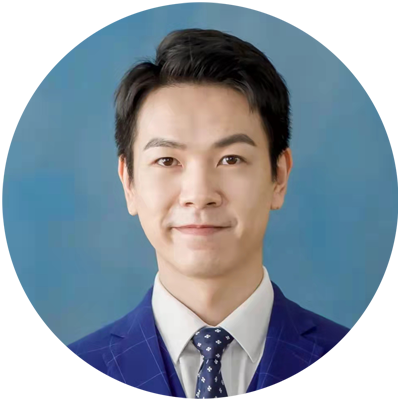
Philip Woo
Hongqiao Campus
English Teacher
Joined Pao School in 2020
Philip was first inspired to come to China due to his grandparents’ roots in Guangdong, as – after growing up in the rural Welsh market-town of Chepstow –he always held questions about his heritage and identity, “You have to have one of those moments when you realise… am I Chinese? Or am I English? Where am I from?”
It was this question that led him to Beijing and then Shanghai, curious about understanding his roots. As his parents had sought to maintain their Chinese identity, he had always spoken Cantonese at home, ate Chinese food at his family's restaurant and celebrated Chinese holidays as a child. However, being the only Chinese boy in his school left Philip with a limited understanding of his family’s culture. He recalls that, during Chinese New Year, he learned to expect a long awaited hong bao (‘red packet’) but didn’t really understand the cultural significance of the gift until he came to China.
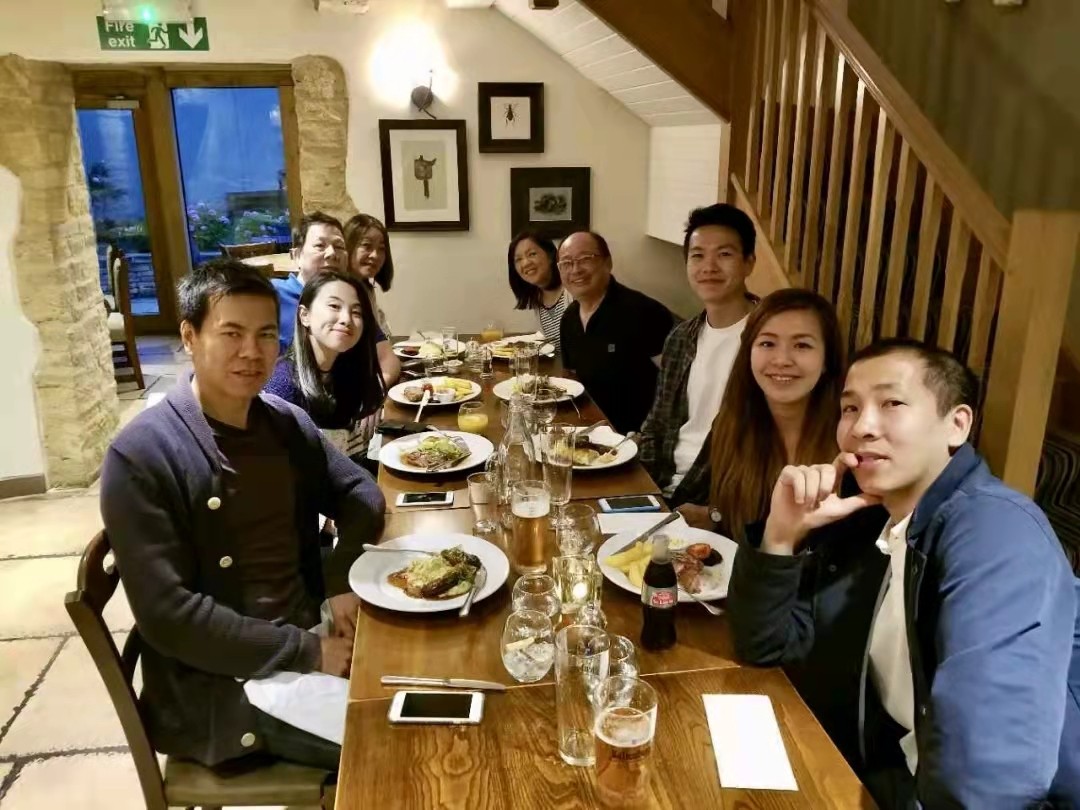
Philip has since learned to speak Mandarin Chinese through real life experiences. Every time he has a captive audience, such as when he is taking a taxi or getting a haircut, he likes to test out his language skills. Sometimes this is a challenge, as – due to his appearance – people often approach him in Chinese and are confused at his inability to speak fluently. However, his accent also breaks the ice, “When I say I’m from England, they are quite inquisitive and ask me lots of questions. That’s how I’ve practised… it’s the last place they imagine I’m from!”
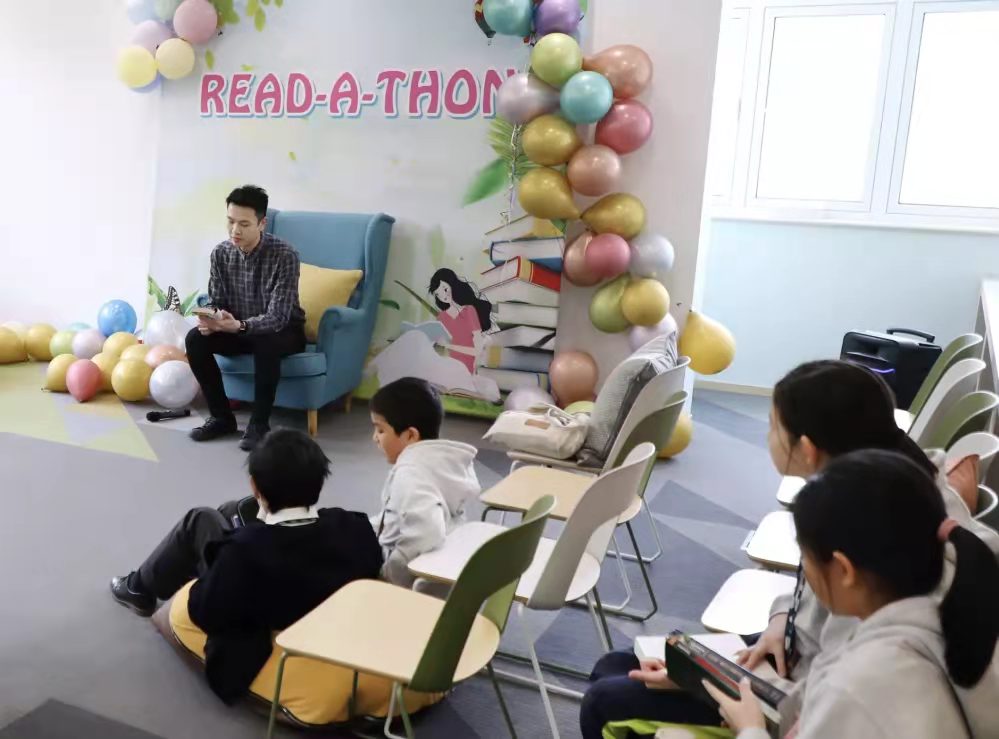
His heritage has also helped in other ways. Due to his knowledge of Cantonese, he feels that it has been easier to pick up grammar when he is speaking Mandarin. It has also been helpful in the school, as he has also been able to use Cantonese to communicate with members of the school community, including members of the PTA.
One of the things he loves about Pao School is its strong Chinese identity and working alongside his Chinese colleagues. For Philip, due to his own multicultural upbringing, it is important to cultivate a bilingual environment,
“My homeroom partner is a Chinese teacher. We try to encourage having
both languages spoken and both languages written in our homeroom.
It’s important that the students don’t forget that they are Chinese.”
The Pao School community has been extremely welcoming, Philip says, lauding the openness and collaborative nature of the faculty and parents. Unlike many schools, he remarks, the parents were always keen to ask how to be more active in their child’s education – rather than placing the onus solely on the teacher. He explains, “The parents are very supportive, they’re not there to question you, or demand things. They’re there to listen, they’re there simply to support their child.”
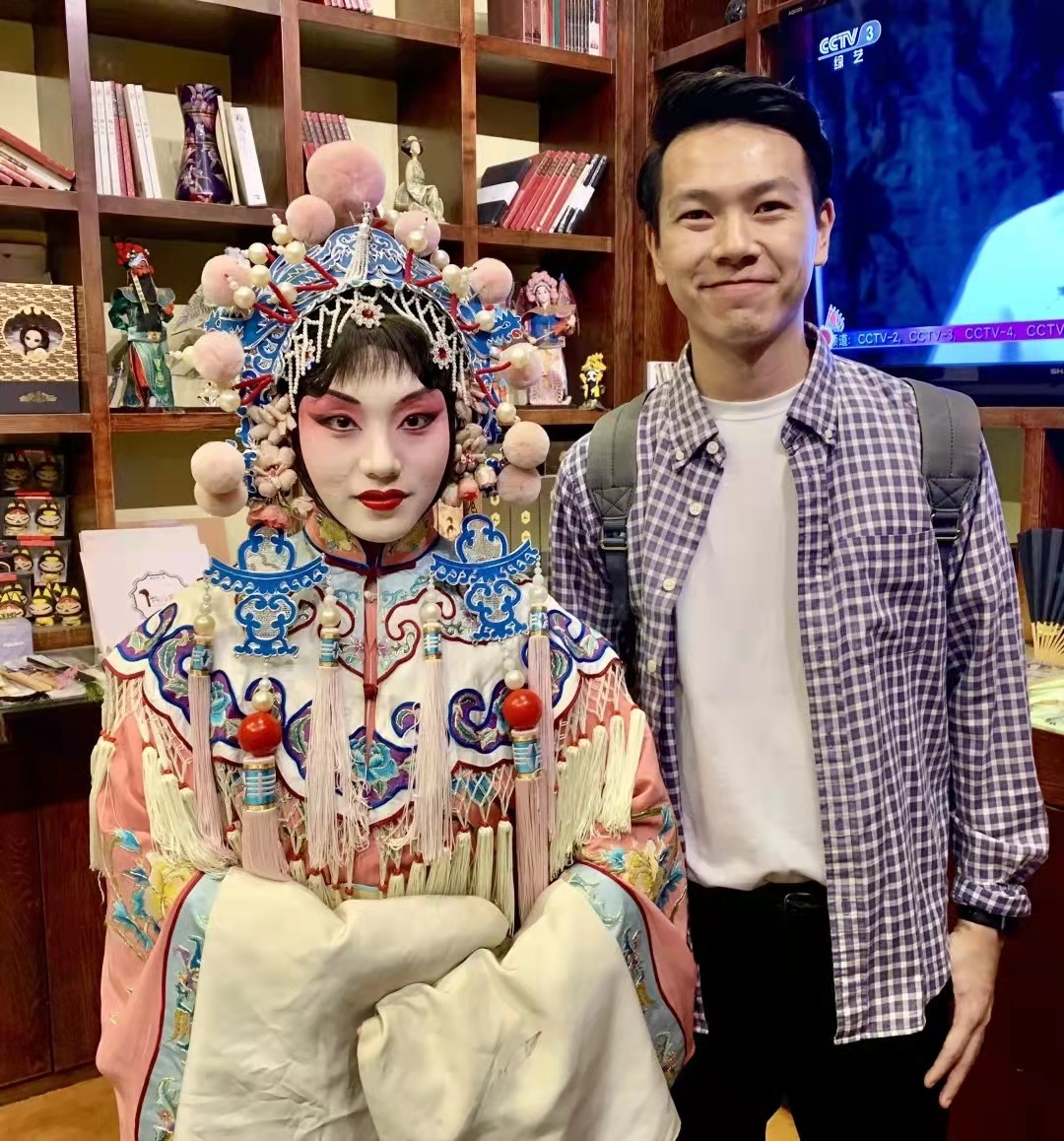
The supportive nature of Pao School parents is the outcome of the school’s strong feeling of community, and desire to reach across boundaries. Philip explains that since coming to Pao School, he has been pleasantly surprised about how well the faculty communicate and notes that it has been a fundamental factor in how he has settled into the school. He says, “Even just within my department, we’re so open to new ideas and to open to sharing things as well. Other staff members might not even be in your department, but they’ll stop and help you out – it really eases you into this process, knowing that everyone is willing to help.”